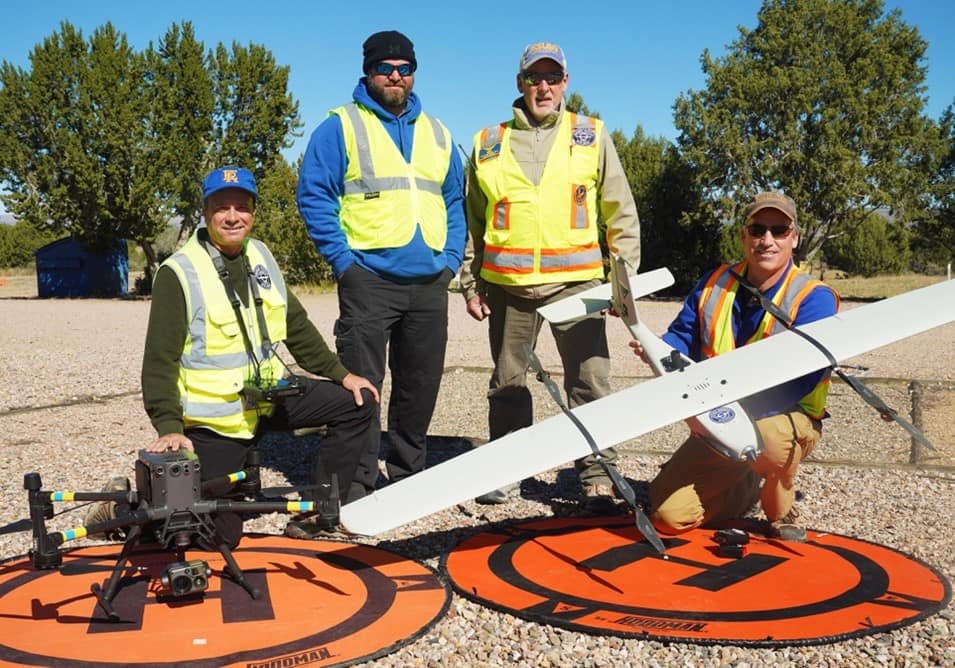U.S. Department of State Chooses Embry-Riddle to Train Drone Operators

Embry-Riddle Aeronautical University has been contracted to assist in the development of curriculum and online training for small Uncrewed Aerial Systems (sUAS) operators for the U.S. Department of State’s Bureau of International Narcotics and Law Enforcement Affairs, Office of Aviation (also known as the Air Wing).
“The government has training standards and robust administrative policies and procedures already in place globally for everything that is crewed but nothing that is uncrewed,” said Dr. Scott Burgess, associate professor of Aviation and principal investigator on the project.
That’s where Embry-Riddle comes in. An established leader in uncrewed systems application and safety — Embry-Riddle became the first academic institution in the world to receive the Trusted Operator certification from the Association for Unmanned Vehicle Systems International (AUVSI), in 2018 — the university will lend its expertise in designing and administering a standardized training program that could potentially be used by government employees, law enforcement entities and civil aviation authorities all over the world.
“Their intent is to standardize sUAS training, certification and standardization globally,” Burgess added. “Our job is to offer our existing sUAS professional education, thus enabling their crews to perform to a set standard, as well as assist in setting conditions that provide a level of knowledge, skills and abilities equivalent to or surpassing established international sUAS crew standards.”
The final step will be to design courseware in conjunction with the Air Wing and offer training to students, earning them an industry certification in sUAS.
“The Worldwide Campus Department of Flight has worked aggressively over the past six years to raise the bar for UAS operational integration, training and standardization into various commercial and governmental disciplines, and the federal government came to us for a reason,” Burgess added. “They have been very open to our ideas, due to the fact that our strength in these areas is combined with our knowledge in aviation safety. The DoS has also encouraged further ideas to establish a noteworthy program.”
Those new ideas will be mined from a wealth of industry experience and various projects led by Embry-Riddle to help push drone technology forward. In 2021, for instance, the university earned a first-of-its-kind waiver to begin training aspiring drone pilots remotely through online video streaming platforms. The Department of Flight has a long history of supporting government agencies, such as the FBI, Daytona Beach Police Department, South Florida Water Management District, Conservancy of SW Florida, Oklahoma Department of Emergency Management and the Government of the Bahamas. Around the same time, Embry-Riddle was awarded nearly $2 million from the Federal Aviation Administration (FAA) to collect risk-assessment data that will help integrate UAS safely into the National Airspace System.
Researchers at Embry-Riddle also continue to leverage uncrewed systems in creative ways to solve real-world problems. Some of those applications are safety-focused, such as using drones to improve tactical response against active shooters or deploying them into hurricanes to more accurately predict storm developments. Other applications might surprise you, such as using drones to map ancient cities.
“We are very pleased to partner with the U.S. Department of State, Bureau of International Narcotics and Law Enforcement Affairs Air Wing in this endeavor,” said Dr. John R. Watret, FRAeS, chancellor of Embry-Riddle’s Worldwide Campus. “As leaders in UAS education programs, we are extremely well-equipped to support these operators and ensure they receive the highest level of training.”
Burgess is leading the project along with fellow drone experts from the College of Aviation at Embry-Riddle’s Worldwide Campus: David Thirtyacre, Department of Flight chair, and associate professors Joe Cerreta and Anthony Galante.

 Mike Cavaliere
Mike Cavaliere